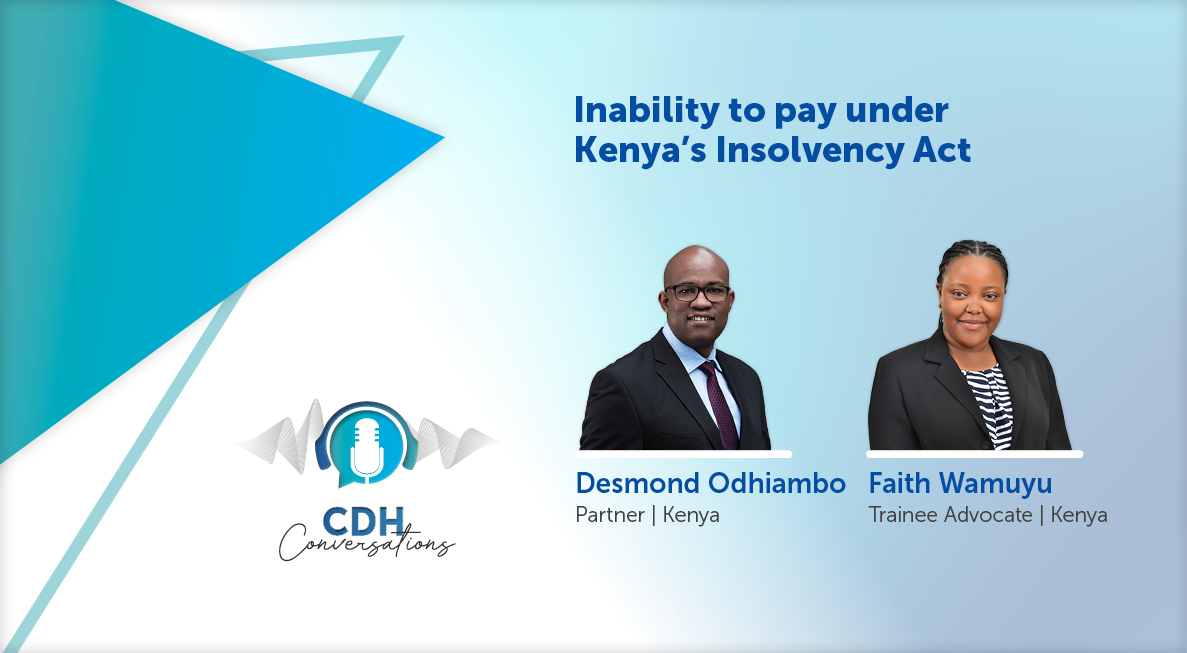2023 Budget summary: VAT
At a glance
- Changes are proposed to clarify the VAT treatment of specific supplies in the short-term insurance industry, prepaid vouchers in the telecommunications industry, and the temporary letting of residential property.
- The meaning of "adjusted cost" in relation to the temporary letting of residential property needs to be clarified, particularly whether it includes the cost of the land.
- Amendments are proposed to address the VAT rules and documentary requirements for gold exports, as well as to provide further clarification and adjustments to the domestic reverse charge regulations for valuable metal supplies.
SARS previously issued Binding General Ruling 14 (BGR14), which deals with the value-added tax (VAT) treatment of specific supplies in the short-term insurance industry. As a result of amendments to section 72 of the VAT Act 89 of 1991 (VAT Act) which deals with the SARS Commissioner’s (Commissioner) discretion to make arrangements or decisions to overcome difficulties, anomalies or incongruities that vendors may face when applying the VAT Act as a result of the manner in which the vendor conducts their enterprise, decisions issued by the Commissioner prior to 21 July 2019, including parts of BGR14 relating to excess payments, were withdrawn with effect from 1 January 2022. It is proposed that changes be made to the VAT Act to clarify the VAT treatment of specific supplies in the short-term insurance industry.
Clarifying the VAT treatment of prepaid vouchers in the telecommunications industry
In the case of MTN (Pty) Ltd v CSARS (79960/2019) [2021] ZAGPPHC the High Court was required to determine whether prepaid vouchers issued for a consideration, which entitles the holder to receive any services or products to the value of the monetary value attributed to the voucher on the MTN mobile network as selected by the holder comprise section 10(18) “monetary vouchers” or 10(19) “product specific vouchers” contemplated in the VAT Act.
MTN previously applied to SARS for a private binding ruling to confirm that its multi-purpose vouchers fall within the ambit of section 10(18) of the VAT Act. However, SARS ruled that these multi-purpose vouchers fell within the ambit of section 10(19). MTN then sought a declaratory order from the High Court to confirm whether the multi-purpose vouchers indeed fall within section 10(18) of the VAT Act. The court held that the voucher is for specified goods or services and is therefore a section 10(19) voucher.
In the past, prepaid vouchers issued by mobile network provides could only be used to purchase specific services offered by that mobile network provider such as calls and short message services. However, due to evolutions in the industry; prepaid vouchers sold by mobile network providers may be used for a multitude of services offered both by the mobile network operator or by third parties, including, for example, calls, data, mobile money services, etc.
Following the issues addressed in the MTN case, and various similar industry interactions with SARS, National Treasury has recognised that the VAT Act does not provide clarity in instances where prepaid vouchers are used for services provided by a third party, or where the mobile network provider is acting as an agent, or those third-party-provided services are regarded as exempt supplies or non-taxable supply in the VAT Act. It is proposed that changes be made to the VAT Act to provide clarity on the VAT treatment in these instances.
VAT treatment of temporary letting of residential property
Clarifying the meaning of “adjusted cost”
Section 18D, together with sections 9(13) and 10(29) were introduced into the VAT Act with effect from 1 April 2022 to clarify the VAT treatment of the temporary letting of residential property.
Section 18D deals with the temporary letting of residential property by a property developer, specifically, the change in use adjustment required to be made by a developer on letting of residential property; the VAT treatment of any subsequent sale of a residential property that has been temporarily let; and the deemed input tax deduction available to developers upon the sale of the property in question.
In terms of section 18(D)(2), where a developer develops residential fixed property for purposes of sale, but temporarily lets such property as residential accommodation in a dwelling, the fixed property is deemed to be supplied by the vendor for a consideration in money equal to the adjusted cost of the property. The term “adjusted cost” is defined in section 1(1) and is essentially the VAT inclusive cost of the goods or services in respect of the development of the property. The developer will be required to make the output tax adjustment, being the tax fraction of the adjusted cost, in the tax period in which the lease agreement comes into effect.
At issue is whether the term “adjusted cost” contemplated in section 10(29) of the VAT Act also includes the cost of the land. It is proposed that section 10(29) be clarified in this regard.
Clarifying the rule dealing with recovery of the previous declared output tax
Section 18D(5) provides that the developer is entitled to claim a deemed input tax deduction equal to the adjusted cost of the fixed property, where the property:
- is sold during the 12-month “temporarily applied” period as contemplated in subsection (3); or
- is temporarily applied for the 12-month period, and then immediately after the 12-month period is no longer used to supply accommodation in a dwelling; or
- falls within the proviso to “temporarily applied”, being property subject to a fixed-term lease greater than 12 months, and which was subject to a section 18(1) adjustment.
As it currently reads, section 18D(5)(c) states that that the deduction is allowed upon the expiration of the 12-month temporarily applied period where the property is no longer let to supply residential accommodation, or, where a section 18(1) adjustment was applied where the property was subject to a fixed-term lease exceeding 12 months. This seems to imply that the input tax deduction may be claimed either once the 12-month period expires and the developer no longer lets the property, or once the 18(1) adjustment is performed, as the case may be, and does not clearly specify that such deduction may only be claimed when the property is subsequently sold in these instances.
National Treasury has recognised that section 18D(5)(c) refers to a situation in which section 18(1) of the act applies and that this creates an anomaly. To address this anomaly, it is proposed that section 18D(5)( c) of the VAT Act be deleted.
Clarifying VAT rules dealing with documentary requirements for gold exports
Gold refineries receive gold delivered from various depositors for refining or smelting purposes.
In certain instances, the refineries may act as agents and sells or exports the gold on behalf of these depositors. The exportation of goods from South Africa will generally be subject to VAT at the zero-rate provided that certain requirements, including certain documentary requirements, are complied with.
When the depositor delivers their gold to the refinery, the gold and other base metal content is determined, and the refinery issues a Sale of Gold Certificate to the depositor and the value of the gold deposited is determined using that day’s morning, afternoon or spot London Bullion Market Association gold price.
The refinery and smelter require large quantities of gold to operate effectively and efficiently and no single depositor provides sufficient quantities of gold for processing on its own. It is accordingly not possible for each depositor to have its own gold containing material treated separately from the gold containing material of other depositors. Accordingly, when a specific depositor’s gold containing material enters the refining/smelting process, it is co-mingled with the gold containing material of other depositors and effectively loses its identity as belonging to a specific depositor.
It is impossible to determine which depositor’s gold is exported or delivered by the refinery as agent due to the fact that the refined gold cannot be identified as being the gold in the gold containing material provided by a specific depositor.
As a result, depositors find it difficult to obtain the documentary evidence as required in terms of section 11(3) of the VAT Act to support the application of the zero-rate on a transaction-by-transaction basis in relation to their gold as contemplated in the regulations issued in terms of section 74(1) of the VAT Act read with paragraph (d) of the definition of “exported” in section 1(1). To address this, it is proposed that changes be made to the VAT Act.
VAT on domestic reverse charge
In order to curb VAT fraud relating to the supply of second-hand gold, SARS introduced a domestic reverse charge regulation (DRC regulation) on 1 July 2022 which came into effect on 1 August 2022. The DRC applied to all registered vendors involved in the production and distribution chain that made supplies of “valuable metal” as defined.
It is proposed that further changes will be made to the DRC regulations to clarify the specific definition of “residue”, i.e. whether it relates only to mining operations or if the definition should be broadened to include “residue” as a general concept.
The definition of “valuable metal” will be amended to clarify what is included and excluded. It is further proposed that the definition will be amended to include gold in the form of a sponge or powder, to align the definition with that of the Precious Metals Act 37 of 2005.
There is currently uncertainty regarding the exclusion from “valuable metal” of goods supplied by holders of mining rights and persons contracted to such holders. It is proposed that the exclusion will be clarified.
A proposed de minimis rule will also be included to exclude goods containing minimal gold content, such as gold-plated jewellery.
Currently, the recipient of the valuable metal is required to issue a statement to the supplier detailing the percentage of the gold content within the “valuable metal” within 21 days after tax has been accounted and paid. The recipient is not always in a position to determine this gold content. It is proposed that the regulations be amended to transfer this from the recipient to the supplier. This will account for recipients that do not in the ordinary course of business use specialised instruments to measure the gold content in goods.
The information and material published on this website is provided for general purposes only and does not constitute legal advice. We make every effort to ensure that the content is updated regularly and to offer the most current and accurate information. Please consult one of our lawyers on any specific legal problem or matter. We accept no responsibility for any loss or damage, whether direct or consequential, which may arise from reliance on the information contained in these pages. Please refer to our full terms and conditions. Copyright © 2026 Cliffe Dekker Hofmeyr. All rights reserved. For permission to reproduce an article or publication, please contact us cliffedekkerhofmeyr@cdhlegal.com.
Subscribe
We support our clients’ strategic and operational needs by offering innovative, integrated and high quality thought leadership. To stay up to date on the latest legal developments that may potentially impact your business, subscribe to our alerts, seminar and webinar invitations.
Subscribe




